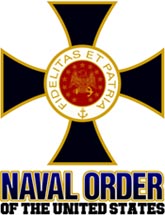Africa
North Africa:
° Algeria
° Egypt
° Libya
° Morocco
° Sudan
West Africa:
° Benin
° Cameroon
° Congo
° Cote d'Ivoire
° Gabon
° (Republic of the) Gambia
° Ghana
° Guinea
° Liberia
° Mauritania
° Mozambique
° Nigeria
° Sao Tome and Principe
° Senegal (Dakar)
° Sierra Leone
East Africa (The Horn of Africa): ° Djibouti
° Kenya
° Eritrea
° Madagascar
° Somalia
° Sudan
° Tanzania
° Zanzibar
Liberia
Portuguese explorers established contacts with Liberia as early as 1461 and named the area Grain Coast because of the abundance of "grains of paradise" (Malegueta pepper seeds). In 1663 the British installed trading posts on the Grain Coast, but the Dutch destroyed these posts a year later. There were no further reports of European settlements along the Grain Coast until the arrival of freed slaves in the early 1800s. Liberia, "land of the free," was founded by free African-Americans and freed slaves from the United States in 1820.

By the dawn of the 19th century, many American states within the Union were considered slavery-free states, and slaves from below the infamous Mason-Dixon Line risked their lives to reach this new Promise Land. But with few skills and no education, ex-slaves found themselves living in poverty in the large cities and contributing to a swelling black underclass.
Conservative white Americans lambasted these masses of freed slaves as instigators of class revolution that would abolish slavery forever. Liberals decried the ex-slaves' deplorable living conditions. African-Americans simply wondered what freedom really meant in a country that always considered them third-class citizens. But all three groups longed for a solution to what appeared an intractable situation a growing number of freed slaves unable to effectively integrate into 19th-century American society.
The idea of ‘repatriating’ African-Americans to Africa originated with Robert Finley, a white Presbyterian minister from New Jersey. Finley felt that freed slaves in America had little hope of integrating into society and would be able to improve their lot by returning to their homelands. Although Finley’s motives were primarily charitable, pro-slavery conservatives eager to exile black revolutionaries agreed with him. The result was the establishment of the American Colonization Society -- an organization tasked with handling the emigration.

The Society’s first president was Bushrod Washington (nephew to President Washington). Other prominent officers and members included Henry Clay, Francis Scott Key, James Monroe and Daniel Webster. Leading African-Americans thoroughly disenchanted with America, such as Absalom Jones and Richard Allen, also became leading members. A majority of freed slaves, however, did not approve of the emigration scheme, arguing that they were fully American and had a duty to fight for those still enslaved.
An initial group of 86 immigrants, who came to be called Americo-Liberians, established a settlement in Christopolis (now Monrovia, named after U.S. President James Monroe) on February 6, 1820.
Thousands of freed American slaves and free African-Americans arrived during the following years, leading to the formation of more settlements and culminating in a declaration of independence of the Republic of Liberia on July 26, 1847. The drive to resettle freed slaves in Africa was promoted by the American Colonization Society (ACS), an organization of white clergymen, abolitionists, and slave owners founded in 1816 by Robert Finley, a Presbyterian minister. Between 1821 and 1867 the ACS resettled some 10,000 African-Americans and several thousand Africans from interdicted slave ships; it governed the Commonwealth of Liberia until independence in 1847.
The American Colonization Society raised funds for its venture through membership subscriptions, but also won backing from the US Congress.
The first ship, the Elizabeth, sailed in 1816 with eight-eight voluntary emigrants, three white company officials, and supplies. The ship landed off the coast of Liberia where the new immigrants immediately began to construct their new settlement. But after three weeks, twenty-two African-Americans and all three white officials died of yellow fever. The second ship, the Nautilus, soon arrived with new passengers and fresh supplies (www.pbs.org; "Africans in America: Brotherly Love Part III 1791-1831). The land occupied by the American Colonization Society in Liberia was not void of native inhabitants when the emigrants arrived. Much of the area was under the control of the Malinke tribes who resented the expansion of these settlers. In addition to disease, poor housing conditions and lack of food and medicine, these new emigrants were also forced into armed combat with the natives.
July 1, 1895, Oakland Tribune,, Oakland, California
WANTED TO BE MARINERS
A Colored Proposition That Came to Grief
By Associated Press toThe Tribune
New York City: Refugees from Arkansas Awaiting Transportation to Liberia

DENVER, Col., July 1. The Rev. D. E. Johnson, pastor of the Church of the Redeemer, announced last night to his congregation that the Afro-American Steamship Company had gone into liquidations and that subscribers to the fund for a steamship line to Liberia could have their money returned on application.
"The same course," he said, "would be adopted wherever there were subscribers."
The scheme was sprung over two years ago and caught the fancy of the colored race, who were assured that they could command the respect of the world if they obtained a footing on the seas.
Mr. Johnson now says that the trade has been monopolized by white men.
There is no way of estimating the amount deposited by the ambitious Afro-Americans, and it is said there is little hope of the fund being restored out the subscribers in out-of-the-way places.
Liberia is the only country in Africa founded by United States colonization while occupied by native Africans. Beginning in 1820, the region was colonized by African Americans, most of whom were freed slaves. The colonizers (who later become known as Americo-Liberians) established a new country with the help of the American Colonization Society, a private organization whose leaders thought former slaves would have greater opportunity in Africa. African captives freed from slave ships by the British and Americans were sent there instead of being repatriated to their countries of origin. In 1847, this new country became the Republic of Liberia, establishing a government modeled on that of the United States and naming its capital city Monrovia after James Monroe, the fifth president of the United States and a prominent supporter of the colonization. The colonists and their descendants, known as Americo-Liberians, led the political, social, cultural and economic sectors of the country and ruled the nation for over 130 years as a dominant minority.
1899. World's Fleet. Boston Daily Globe
Lloyds Register of Shipping gives the entire fleet of the world as 28,180 steamers and sailing vessels, with a total tonnage of 27,673,628, of which 39 perent are British.
| Great Britain | 10,990 vessels, total tonnage of 10,792,714 |
| United States | 3,010 vessels, total tonnage of 2,405,887 |
| Norway | 2,528 vessels, tonnage of 1,604,230 |
| Germany | 1,676 vessels, with a tonnage of 2,453,334, in which are included her particularly large ships. |
| Sweden | 1,408 vessels with a tonnage of 643, 527 |
| Italy | 1,150 vessels |
| France | 1,182 vessels |
For Historical Comparison
Top 10 Maritime Nations Ranked by Value (2017)
| Country | # of Vessels | Gross Tonnage (m) |
Total Value (USDbn) |
|
|---|---|---|---|---|
| 1 | Greece | 4,453 | 206.47 | $88.0 |
| 2 | Japan | 4,317 | 150.26 | $79.8 |
| 3 | China | 4,938 | 159.71 | $71.7 |
| 4 | USA | 2,399 | 55.92 | $46.5 |
| 5 | Singapore | 2,662 | 64.03 | $41.7 |
| 6 | Norway | 1,668 | 39.68 | $41.1 |
| 7 | Germany | 2,923 | 81.17 | $30.3 |
| 8 | UK | 883 | 28.78 | $24.3 |
| 9 | Denmark | 1,040 | 36.17 | $23.4 |
| 10 | South Korea | 1,484 | 49.88 | $20.1 |
| Total | 26,767 | 87.21 | $466.9 | |









 Copyright ~ 1998-2018.
Copyright ~ 1998-2018. 